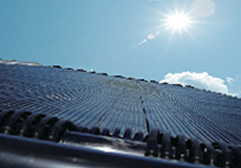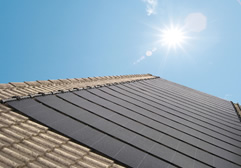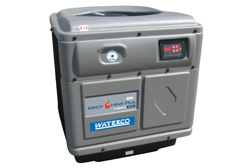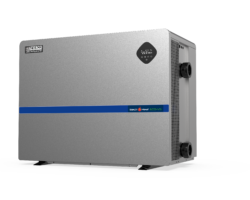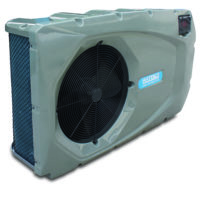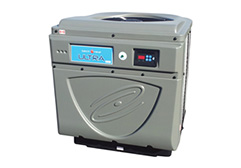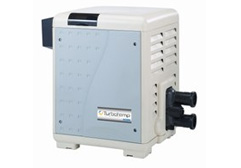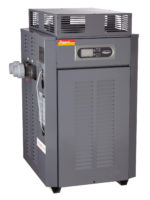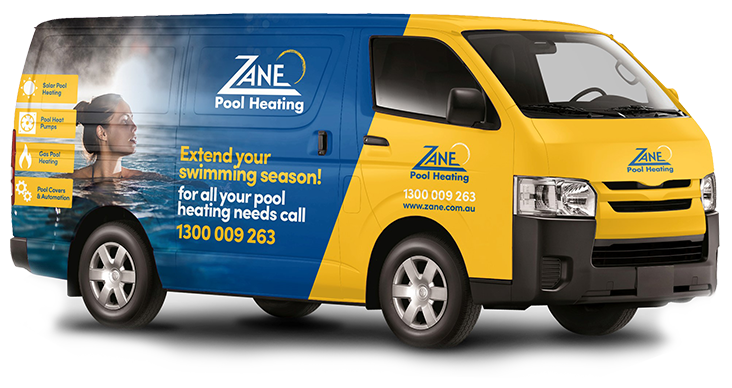- Pool Heating Products
- Choosing Pool Heating
Choosing Pool Heating
Choosing pool heating may be a daunting task but rewarding when it is selected in terms of how a person wants to use their pool.
Pool heating is increasing in popularity with swimming pool owners wanting to increase their enjoyment of the pool and are investing in pool heating solutions to extend the swimming season or swim all year. There is a range of pool heating solutions to choose from, depending on budget, location and, how and when the pool will be used.
Creating and maintaining the ideal pool temperature doesn’t come naturally in most locations. While pool water predominantly hovers around the 15-20 degree Celsius (around 64-68 degrees Fahrenheit), it takes a designated heating system to bump it up to where we like it most – a balmy 25-29 degrees (77-84.2 degrees Fahrenheit).
Installing the right pool heating solution for your swimming needs to extend the swimming season by up to six months may be with solar, and then beyond with conventional heaters will increase the return on what was undoubtedly a significant investment in your pool.
Choosing pool heating with three main options – solar pool heating, gas pool heating and pool heat pumps. Below is an overview of each type and their benefits.
Solar pool heating, the most environmentally friendly option of all, operates by using the energy of the sun.
The principals involved in solar pool heating are very simple. Imagine a garden hose lying in the sun for several hours. When you turn on the tap, out comes hot water. The sun’s energy has been absorbed by the hose and transmitted as heat to the water inside it. Basically the hose acts as a solar collector, which is the process of solar heating.
Solar systems are a low cost method to heat up your pool and have virtually no operating costs, just the cost of electricity to pump the pool water through the solar absorber on the roof. Solar heating systems are also simple to maintain.
Unlike other pool heaters on the market, solar pays for itself in just a few years when compared to other forms of heating. After the initial setup cost, the ongoing running expenses are minimal as heat is provided free from the sun. This enables you to increase the amount of time you spend in your pool without worrying about expensive energy bills.
The amount of heat absorbed and the subsequent increase in temperature depends on three key criteria:
- The size or area for the collector and the number of tubes per square metre;
- The direction the collector is facing;
- The quality of the collector system.
Ultimately, the biggest influence is the exposure to the sun. This gives this system the advantage of being very cost effective in terms of running costs; savings may keep coming for up to 20 years for a properly installed system.
However, if you live in a climate that does not get a great deal of sunlight or a very shady suburb, then a solar system may not be a viable option. Installation may also be costly depending on the complexity of the system.
There are two types of solar collectors available from Zane – Gulfpanel and Gulfstream.
Zane Gulfpanels are a structured system made in fixed size lengths, which are laid side by side to form a large grid and provide a neat appearance on the roof. These systems generally require a larger rectangular area for installation and are commonly referred to as panel type systems within the industry.
The key benefits are:
- Excellent heat transfer characteristics
- More resistant to wildlife attacks in regions where this is a problem
- One piece panels with fewer joints
- UV stabilised
Zane Gulfstream systems are custom built to blend in with the contours and shape of your roof, installers to cover more area with the solar absorber material allowing maximum coverage. Gulfstream systems are commonly referred to as rubber or strip type systems within the industry.
The key benefits are:
- Easily fitted to odd-shaped smaller roofs to maximise roof coverage
- Flexible installation around valleys and rides of the roof
- Excellent heat transfer characteristics
- UV stabilised
Solar pool heating systems are able to be installed on existing pools using the filtration pipework or new pools with dedicated solar plumbing lines built in.
Pool Heat Pumps are reliable, highly efficient and economical to run. Pool heat pumps extract heat from the ambient air (similar to a reverse cycle air conditioner), and use this heat to produce warm water.
Benefits of heat pumps include their high energy efficiency and lower running costs. As a guide, you can save up to 80% over LPG and 50% over natural gas fuelled heaters. And the best thing about heat pump pool heaters is that they operate regardless of the weather.
Compared to gas and electric, heat pumps use just a fraction of the energy to generate the same amount of heat output. Although initially heat pumps take longer than gas heaters to warm up the pool or spa water, they are much more economical and will then maintain the heating as well as gas heaters.
One of the disadvantages of this type of system is that they can lose their high energy efficiency slightly once the weather really cools down, as the heat pump needs to work harder to heat the water against the outside temperature. However, unless you live in an area that does experience very low winter temperature, this is not a concern.
Pool heat pumps may be expensive to install initially, but the low operating costs should make up for this in no time at all compared to other forms of conventional pool heating.
New technology has begun to gain popularity with inverter pool heat pumps which utilise a variable speed compressor to regulate the pool water temperature automatically and independently which may have running cost benefits when compared to conventional pool heat pumps.
Gas pool heating is the fastest method for heating your pool or spa, providing a comfortable temperature for swimming on demand. Put simply, they could allow you to swim all year round.
Gas pool heaters use natural gas or LPG, heating the pool water by pumping it through a heat exchanger.
A key advantage of gas pool heating is it can heat pool water much faster than a solar pool heating or heat pump systems can, and will heat the pool and spa water up to 40oC, no matter how cold the climate is.
Selecting the right size gas heater depends on four key factors:
- The amount of water to be heated;
- How long you are prepared to wait for your pool to heat up;
- Your preferred swimming temperature;
- Adequate gas supply.
Contact Us: Local Expert Help
We are happy to help. take 20 seconds selecting from the options below so we can get you the right information first time.

